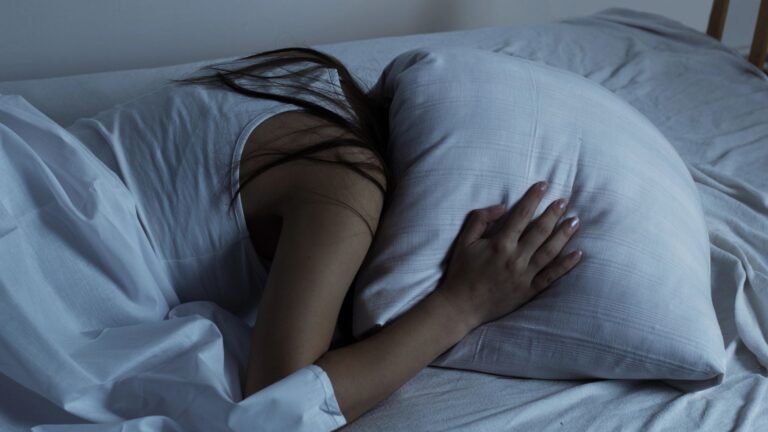You may be wondering why you should consider a heroin treatment center now, especially if you’ve been managing opioid use on your own or cycling through partial supports. A heroin treatment center offers specialized care tailored to the complex physical, psychological, and social aspects of heroin use disorder. By seeking help sooner rather than later, you can reduce the risk of severe withdrawal, overdose, and long-term health complications.
Heroin use disorder affected around 900,000 people aged 12 and older in 2022 according to the National Survey on Drug Use and Health, underscoring how widespread this challenge has become [1]. Yet fewer than 5% of those in need receive treatment each year. A dedicated center can bridge that gap, offering detoxification, evidence-based therapies, medical management, and aftercare planning under one roof. Whether you’ve tried outpatient counseling or support groups, a comprehensive heroin treatment center can provide 24/7 monitoring, medication-assisted therapy, and peer support you won’t find elsewhere.
Understand heroin addiction
Heroin addiction isn’t simply a matter of willpower. Chronic heroin use changes the way your brain and body function, creating a cycle of tolerance and withdrawal that can feel impossible to break.
- Physiological dependence: Over time, your body requires more heroin to achieve the same effect. Stopping suddenly triggers intense withdrawal symptoms—sweating, nausea, muscle aches—that drive you back to use.
- Psychological factors: Stress, trauma, depression, and anxiety often underlie heroin use. Without targeted therapies, these root causes remain unaddressed, increasing relapse risk.
- Social triggers: Environments or relationships tied to drug use can sabotage recovery. A controlled rehab setting helps you step away from those triggers and build healthier routines.
If you’re also struggling with misuse of prescription opioids or other substances, see our prescription drug addiction treatment and fentanyl addiction recovery resources for tailored guidance.
Recognize withdrawal symptoms
Withdrawal from heroin can begin within hours of your last dose and peak around 48–72 hours later. Common symptoms include:
- Gooseflesh, chills, sweating
- Abdominal cramps, diarrhea, vomiting
- Anxiety, irritability, insomnia
- Muscle aches, restlessness
- Intense drug cravings
Timeline of withdrawal
- Early phase (6–12 hours): Anxiety, watery eyes, yawning
- Peak phase (48–72 hours): Flu-like symptoms, severe cramps
- Late phase (5–10 days): Insomnia, mood swings, ongoing cravings
Risks of unsupervised detox
Attempting to detox alone can lead to dehydration, electrolyte imbalances, and dangerous blood pressure swings. Without medical monitoring, you may relapse just to ease the discomfort. A heroin treatment center provides nursing staff, medications, and 24/7 observation to keep you safe.
Explore detoxification process
Detox is the first critical step in heroin rehab. At a dedicated center, you’ll benefit from:
Medical supervision benefits
- Continuous vital-sign monitoring
- Prompt response to complications
- Emotional support during peak distress
Medications in detox
Medications approved by the FDA can ease withdrawal:
- Opioid agonists (methadone)
- Partial agonists (buprenorphine/Suboxone®)
- Antagonists (naltrexone)
Table: Common detox medications
| Medication | Type | Purpose |
|---|---|---|
| Methadone | Full agonist | Prevents withdrawal, reduces craving |
| Buprenorphine | Partial agonist | Eases withdrawal with lower risk |
| Naltrexone | Antagonist | Blocks opioid effects, prevents relapse |
Holistic support strategies
Rehab centers often integrate yoga, meditation, acupuncture, and nutritional counseling to support physical and mental wellness. These approaches help rebuild your resilience and coping skills.
Compare treatment approaches
Treatment for heroin use disorder typically falls into three categories:
- Inpatient rehab programs
- 24/7 structure and supervision
- Daily individual and group therapy
- Relapse prevention education
- Peer support networks
- Outpatient rehab options
- Flexible scheduling for work or school
- Medication management visits
- Regular counseling and support groups
- Sober living integration
- Medication-assisted therapy (MAT)
- Combines FDA-approved medications with behavioral therapies
- Reduces cravings and overdose risk
- Shown to improve retention in treatment [2]
If you need help for multiple substances at once, explore our benzodiazepine detox and treatment, cocaine rehab program, and meth addiction treatment pages.
Evaluate medication management
Pharmacotherapy plays a central role in heroin treatment:
Role of pharmacotherapy
- Stabilizes brain chemistry
- Lessens withdrawal severity
- Blocks rewarding effects of heroin
Matching therapy to needs
Your medical history, severity of addiction, and co-occurring disorders guide medication choice. A treatment center assesses these factors to create a personalized plan.
Combined therapy efficacy
Studies show combining MAT with cognitive-behavioral therapy and contingency management yields the best outcomes, reducing relapse rates to 40–60% [3].
Consider inpatient programs
Inpatient heroin rehab centers offer an immersive environment that removes you from triggers and distractions.
24/7 care and monitoring
Nurses and physicians supervise your detox and recovery, providing immediate intervention if complications arise.
Structured environment
A daily schedule of therapy, education, exercise, and leisure activities fosters discipline and healthy habits.
Peer support benefits
Living alongside others in recovery builds camaraderie, accountability, and shared insight. Group sessions address masculinity, societal pressures, and relationship challenges, helping you explore emotions in a judgment-free setting.
Assess outpatient options
If you have work, school, or family commitments, outpatient rehab might suit your needs.
Flexibility and responsibilities
You attend therapy sessions and medication visits while remaining in your community. This helps you apply coping skills in real-world settings.
Sober living integration
Some centers partner with sober living homes for a supportive transition back into daily life.
Support groups and counseling
Regular individual therapy, group meetings, and participation in Narcotics Anonymous provide ongoing accountability.
Identify center benefits
Choosing a quality heroin treatment center means accessing comprehensive services:
Comprehensive treatment services
- Medical detox and MAT
- Individual, group, and family therapy
- Dual-diagnosis care for mental health issues
- Holistic therapies promoting overall wellness
Evidence-based therapies
- Cognitive-behavioral therapy (CBT)
- Contingency management
- Dialectical behavior therapy (DBT)
- Motivational interviewing
Relapse prevention training
Centers teach you to spot triggers, manage stress, and maintain coping strategies after discharge.
Aftercare planning
A strong program helps you develop a personalized aftercare plan, including continued counseling, support group referrals, and lifestyle adjustments.
Plan aftercare support
Recovery doesn’t end at discharge. Effective aftercare includes:
Continuing counseling
Set up outpatient appointments or telehealth sessions to maintain progress.
Support group involvement
Regularly attend meetings like Narcotics Anonymous or SMART Recovery for peer encouragement.
Building sober network
Cultivate friendships with people in recovery. A sober community can provide accountability and social activities that reinforce your commitment.
Monitoring and follow-up
Periodic check-ins with your treatment team help catch warning signs early and keep you on track.
Start treatment today
Taking action can feel daunting, but a few concrete steps make the process manageable:
Choosing a facility
Look for accreditation, licensing, and staff qualifications. Tour centers if possible to get a feel for the culture and support services.
Insurance and costs
Verify coverage for detox, inpatient or outpatient care, medications, and aftercare. Many centers accept private insurance, Medicaid, or offer sliding-scale fees.
Questions to ask
- What accreditation does your center hold?
- Which medications and therapies do you offer?
- How do you handle dual-diagnosis cases?
- What aftercare support is included?
Making the first call
Reach out to admissions or intake coordinators. They can answer questions, explain next steps, and schedule your assessment. If phone calls feel overwhelming, ask a trusted friend or family member to support you through the process.
You don’t have to face heroin addiction alone. A dedicated heroin treatment center gives you the medical expertise, therapeutic frameworks, and peer support needed to start a lasting recovery journey. The sooner you seek help, the quicker you can regain control of your health, relationships, and future.





